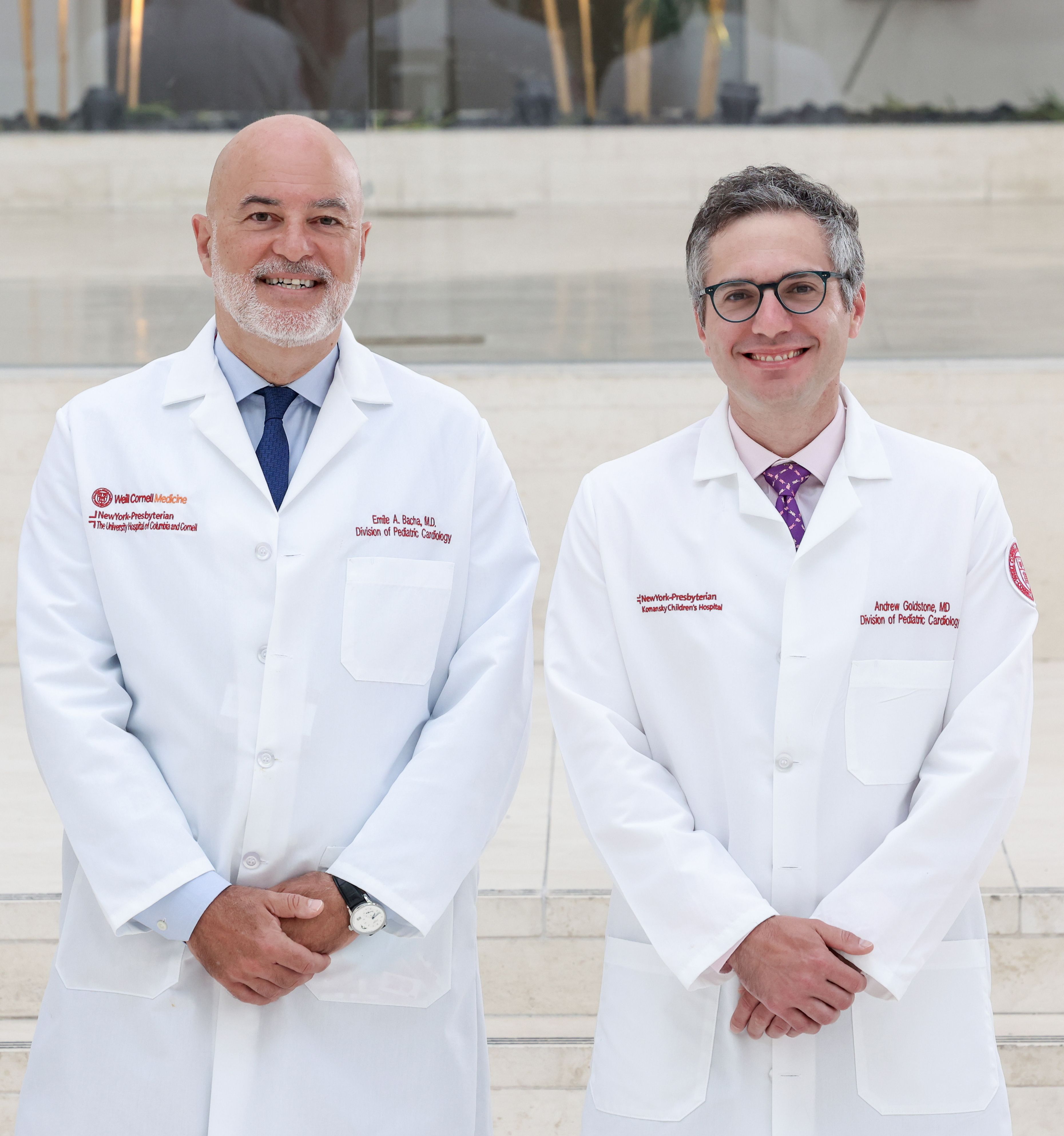
Dr. Emile Bacha and Dr. Andrew Goldstone
It is not uncommon for people born with heart disease and treated as children to "get lost in the healthcare system" after age 25. Yet today, there are more adults living with congenital heart disease than children with those disorders.
The Department of Cardiothoracic Surgery surgeons are leaders in the treatment of patients with adult congenital heart disease — both those with congenital heart disease who were not diagnosed until adulthood, as well as those who had congenital heart surgery as children and who need an additional procedure as an adult. Patients are able to receive their care in a hospital setting designed for adults, without having to stay in a children's hospital.
Key to the success of our program is a close collaboration between cardiac surgeons, cardiologists, and interventional cardiologists who work together to assemble a regimen of care for each patient. That care may require:
At Weill Cornell, we specialize in the treatment of all forms of adult congenital heart disease, including:
In addition to superior surgery, patients benefit from comprehensive care that includes rehabilitation, psychosocial, and nutritional support to return them to an optimal quality of life.